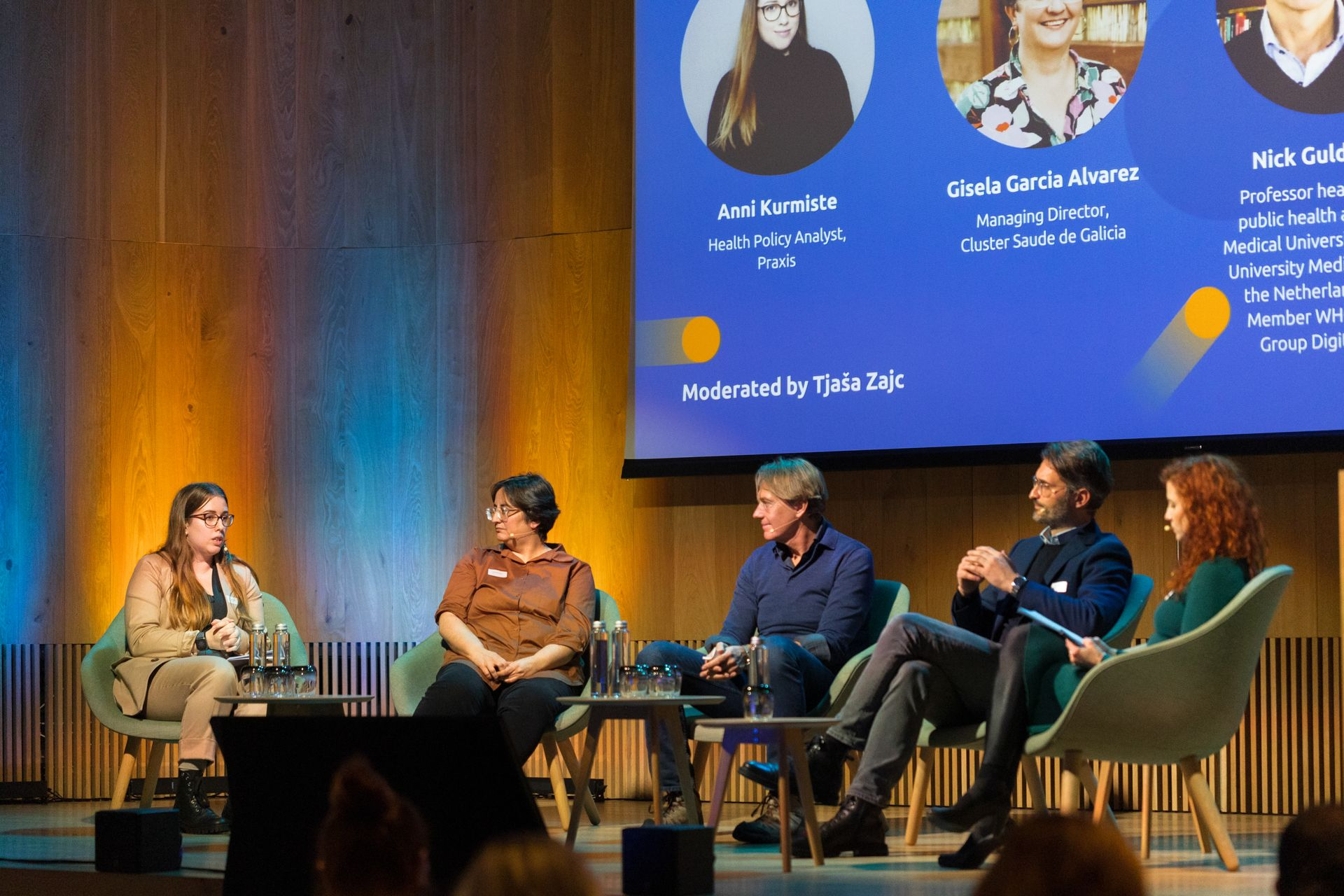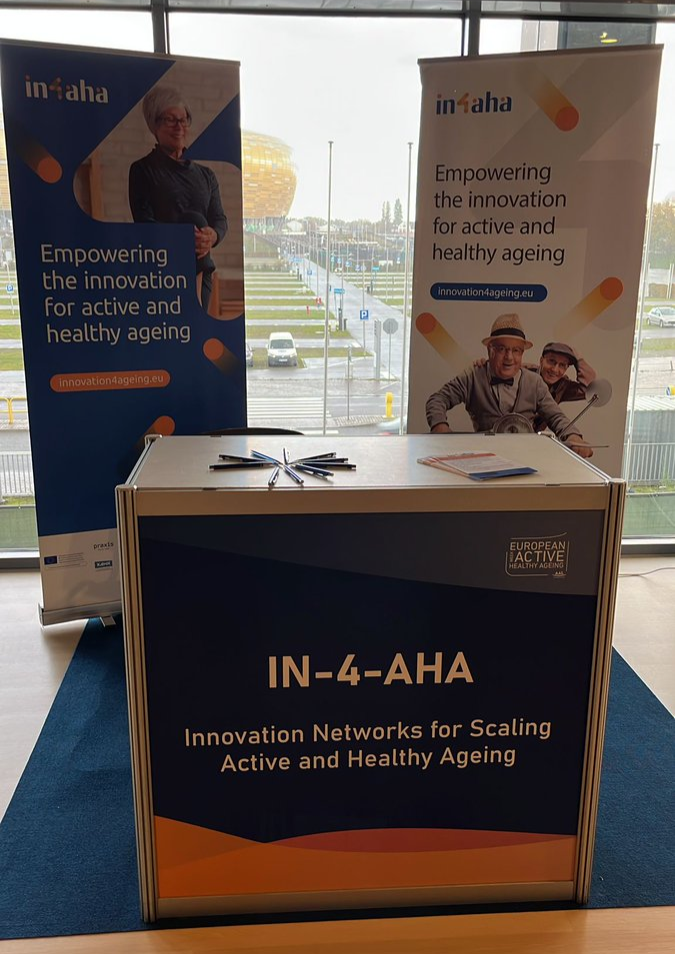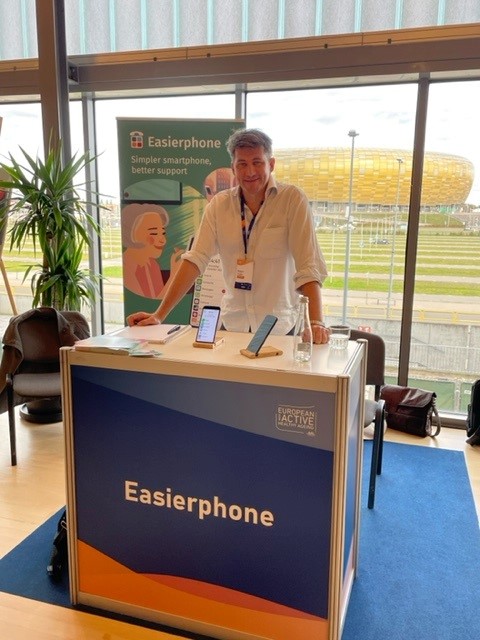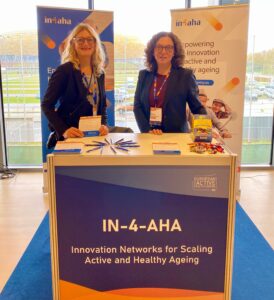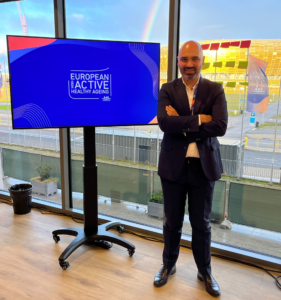Guest blog written by Tjaša Zajc, who moderated the IN-4-AHA final conference.
Tjaša is an internationally recognized digital health moderator and speaker focused on global healthcare digitalization. She is the founder and host of Faces of digital health podcast, which is consistently ranked among the top digital health industry podcasts. She also works as business developer at the healthcare IT company Better, and is a patient advocate.
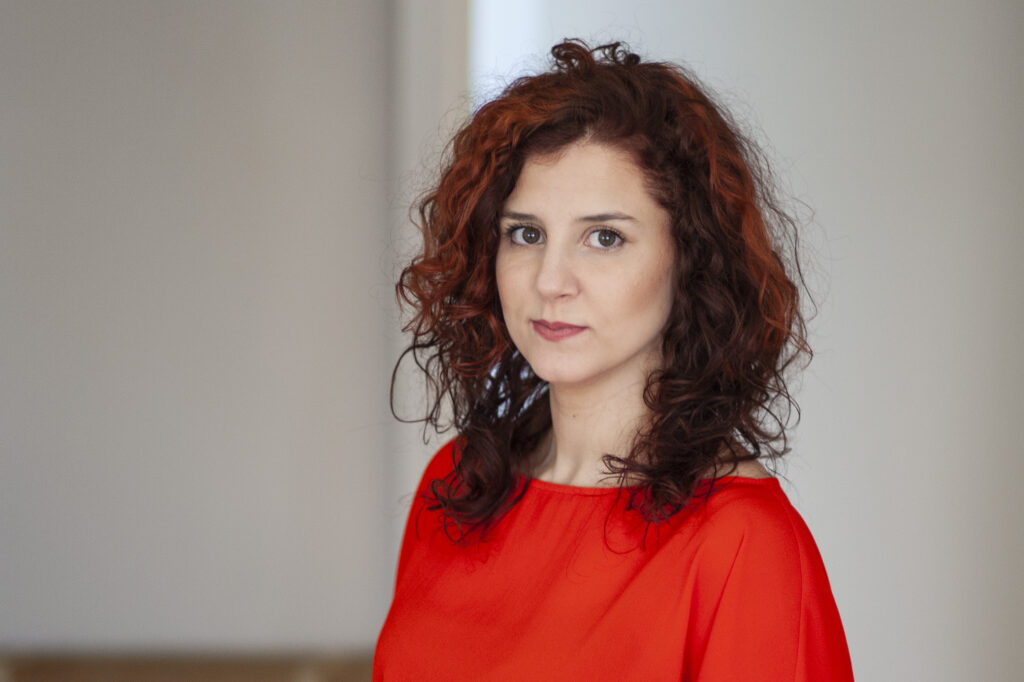
The rapid aging of the global population is unquestionable. At the same time, innovators working on solutions for active and healthy aging often face struggles in getting funding and partnerships. Startups need to know the healthcare economics, policy and regulation well, and health and social care providers need to be open to testing, creating living labs and uptake of solutions. These were just a few conclusions mentioned at the closing conference of the 2-year IN-4AHA project, which took place in Tallin on 7 December.
The innovation Networks for Scaling Active and Healthy Ageing (IN-4-AHA) project runs from January 2021 until December 2022, and is funded under Horizon 2020. It connected key European stakeholders who looked at opportunities and challenges in the AHA space related to the current policy landscape and the environment in the EU.
Innovators in the field of healthy aging or healthy living – may it be startups, healthcare or social care providers – face many barriers in their success. In Europe, healthcare systems are fragmented and diverse, making it very difficult for solutions to scale across borders. Because the field of healthy and active aging is severely underfunded, public funding mechanisms play an important part in encouraging new ideas.
The IN4-AHA project looked at three aspects of innovation for healthy aging: investment readiness, innovation scale-up model, and long-term investment plan. “You can’t google your way into the market,” said Andreas Palm, Management Consultant at CIVITTA, a leading independent management consultancy in Emerging Europe, about why collaboration and networking are important for companies when trying to succeed in the market.
In the introductory keynote, Piret Hirv, IN-4-AHA project leader and Manager at Tehnopol/Estonian Connected Health Cluster, emphasized that for solutions to see an uptake on the market, they need to be based on co-creation & person-centredness – meaning that they look beyond the needs of the individual but encompass her broader values, mindset, and motivating factors. With the rising amount of data and its strict regulation, governance is becoming a key issue for many organizations, was discovered through the project.
One of the outputs of the IN-4-AHA project is also a data governance guidebook.
In the closing panel, speakers discussed the future of aging and healthy living. Some of the final policy recommendations of the IN4AHA project include: boosting smart and more accessible funding covering all innovation stages, more harmonized regulatory and reimbursement frameworks to support AHA innovation, support and innovation development approach based on co-creation and participatory design in real-life environments, boosting trust & awareness for health and care professionals and citizens, better connect AHA innovation community, making the most of existing platforms and initiatives.
In 2020, life expectancy in the EU was 83 years for women and 78 for men. The number of healthy life years at birth was estimated at 64.5 years for women and 63.5 years for men in the EU. So on average, women spend almost 20 years with disability, and men 14 years, according to eurostat. There is much room for improvement in reducing the years with disabilities.
Nele Labi, Vice-chancellor for Innovation, Estonian Ministry of Social Affairs, encouragingly said that while we live in very uncertain times, trends around migrations, lifestyle, and aging are known, which should be encouraging for those invested in changing healthy living.
